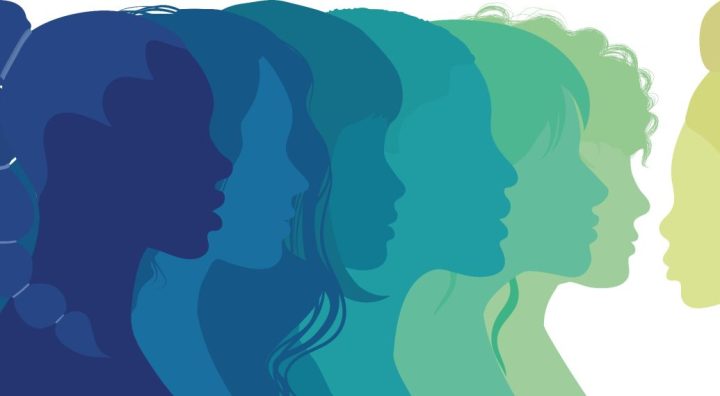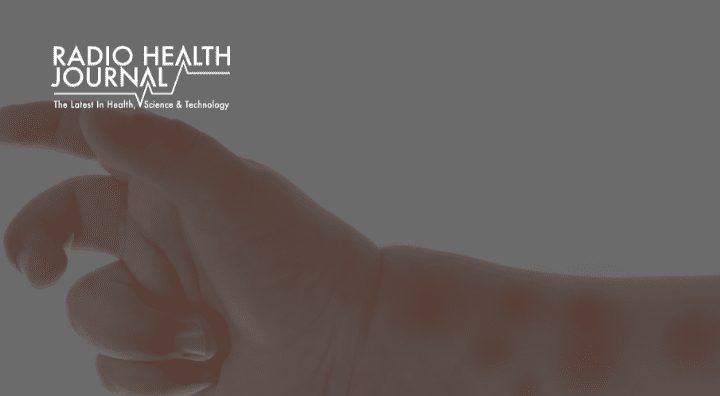Children and young adolescents may experience perceptual distortions or strange thoughts, but if they become frequent and disruptive, they can be an early tip-off to serious future mental health distress. An expert discusses this new field of mental health research in adolescents.
Most young children have imaginary friends they play with. Kids routinely chat with people who aren’t there, and no one thinks the child has a mental health issue. But sometimes those conversations persist into adolescence. That’s when parents get worried. However, there may be more to it than we think. A study now shows that more than 17% of pre-teens in the U.S. — kids between the age of nine and 12 — persistently hear, see, feel or smell things that don’t physically exist. Experts call these episodes “psychotic-like experiences” or PLEs.
Guest Information:
- Dr. Nicole Karcher, Instructor, Department of Psychology, Washington University, St. Louis
Links for more info:
22-02 Children's "Psychotic-Like Experiences"
Nancy Benson: This is Radio Health Journal. I'm Nancy Benson. This week, screening children for future psychosis.
Dr. Nicole Karcher: It could be that this is the time to potentially identify serious mental health concerns like schizophrenia.
Nancy Benson: Psychotic-like experiences in children when Radio Health Journal returns...
Most young children have imaginary friends they play with. Kids routinely chat with people who aren't there, and no one thinks the child has a mental health issue. But sometimes those conversations persist into adolescents. That's when parents get worried. However, there may be more to it than we think. A study now shows that more than 17% of preteens in the U.S. -- kids between the age of nine and 12 -- persistently hear, see, feel or smell things that don't physically exist. Experts call these episodes psychotic-like experiences or PLEs.
Dr. Nicole Karcher: So these are generally not clinical experiences. They're more like unusual thoughts and perceptual distortions. So they can be hearing or seeing things that aren't there, but they're not held with the full conviction that you would think of with hallucinations or delusions.
Nancy Benson: That's Dr. Nicole. Karcher, an instructor in the Department of Psychiatry at Washington University in St. Louis, and one of the lead researchers in a new study on PLEs funded by the National institute of Mental Health. She says it's common to have occasional perceptual distortions or unusual thoughts. And that for most of us, they're fleeting and of no concern.
Dr. Nicole Karcher: Hearing your name in public and then you realize that no one's calling your name, or feeling your phone vibrate and your phone's not actually vibrating. So you're having this sensation that's not based in reality. When we talk about unusual thoughts, we can talk about things like having thoughts that people are talking about you when there's no one really talking about you. Or thinking like a TV commercial is meant specifically for you, even though it's meant for everyone.
You might feel like the newscaster's talking to you, it might be a fleeting thought that you have that the newscaster's talking to you, and then you think about it and think, oh, but it's not true.
Nancy Benson: On the other hand, psychotic-like experiences, whether in the form of unusual thoughts or physical sensations are more persistent.
Dr. Nicole Karcher: You can have mild perceptual distortions, like just thinking things are different from the way they usually are. So brighter or duller, or larger or smaller. You could hear unusual sounds like banging, clicking, hissing or clapping in your ears. So some things that people typically experience at least once or twice in their lifetime, but it's very unusual to be experiencing some of these things. So let's just pick one of them, like feeling like something is crawling on your skin. I'm sure a lot of us have felt like at some point in our life a bug was crawling on our skin and we looked down and there's no bug. But it would be very unusual to have that happen over the course of several years on a regular basis.
Nancy Benson: Some kids who experienced PLEs report that the episodes don't bother them. They don't suffer from cognitive impairment or low performance at school. However, it's different for kids with psychotic-like experiences that are persistent and distressing. They often have debilitating mental health issues.
Dr. Nicole Karcher: So suicidal ideation and behavior, and depression, anxiety, they're showing lower functioning. So they're showing worse performance in school. They're showing lower cognition, and this is specifically coming out in areas like working memory.
Nancy Benson: Karcher says no one has ever looked at PLEs in kids this young before. In fact, she says it may offer clues for how to prevent psychosis from developing in adults, a disorder that's notoriously challenging to treat. Most of the time, children are never examined for their risk for psychotic symptoms. That usually happens in late teens or early adulthood. Karcher believes results from her study indicate that intervention should take place during early adolescence.
Dr. Nicole Karcher: It's relatively new to start looking at these types of experiences in middle childhood. And one of the reasons it's relatively new is there's, in some ways, people say, well, aren't we talking about just normative experiences. You know, in middle childhood we know psychotic-like experiences are much more prevalent, and one of the reasons is they can be associated with really normative experiences, like having an imaginary friend.
But now about this time, it starts to become less normative. And what we're finding in our research is we can see that some of these youths are already experiencing lower grades and other mental health concerns -- lower cognition, some alterations in brain metrics. And so there's increasing evidence that these experiences may be important markers of lower functioning and impairment in children, as young as age nine.
Nancy Benson: Earlier intervention would necessitate screening school-age children for mental health issues, just as many schools and pediatricians already test for hearing and vision impairments. Would kids ages nine through 12 also answer questionnaires asking whether they experienced PLEs?
Dr. Nicole Karcher: We think of psychotic experiences as being these very rare... really very scary experiences. And so, I think if there was widespread screening, you would see that these are actually a bit more prevalent, and often not associated with debilitating outcomes. And so if we could get screening efforts, and if we could identify a couple of questions, a couple of metrics that would identify those that are associated with long-term impairment, maybe we could kind of identify those children early on. And rather than maybe have kind of more intense interventions, like anti-psychotic medications or something like that, we could have low level early interventions.
Nancy Benson: Karcher realizes it will be an uphill battle to educate parents and communities to get them on board with an initiative like this.
Dr. Nicole Karcher: When we hear psychotic-like experiences or psychosis or psychotic disorder, I think a small red flag goes off in our mind, where it's uh-oh, that sounds like a really scary experience. I don't think people like thinking about being out of control of their thoughts. And so I think normalizing that, that these are generally pretty normal experiences that most people have had at least one of in their lifetime. And so identifying, just like with physical health conditions, if we could find a way that before these experiences become distressing and persistent and go on for years -- and that are associated with a wealth of impairment and functioning and other mental health concerns -- maybe we could change people's lives.
Nancy Benson: Karcher says that the majority of kids who are labeled with PLEs today come from minority groups, subjected to systemic racism, often living in poverty. She says that's an alarming finding that warrants further investigation. In the meantime, she says mental health screening is a small price to pay to avoid adult psychosis. When PLEs progress to full threshold psychotic disorders, they're debilitating for both the individual experiencing them and for their loved ones.
You can learn more about all of our guests by visiting our website at radiohealthjournal.org. Our writer producer this week is Polly Hansen. Our production manager is Jason Dickey. I'm Nancy Benson.
Sign up to receive email updates
Enter your name and email address below and I'll send you periodic updates about the podcast.











Leave a Reply